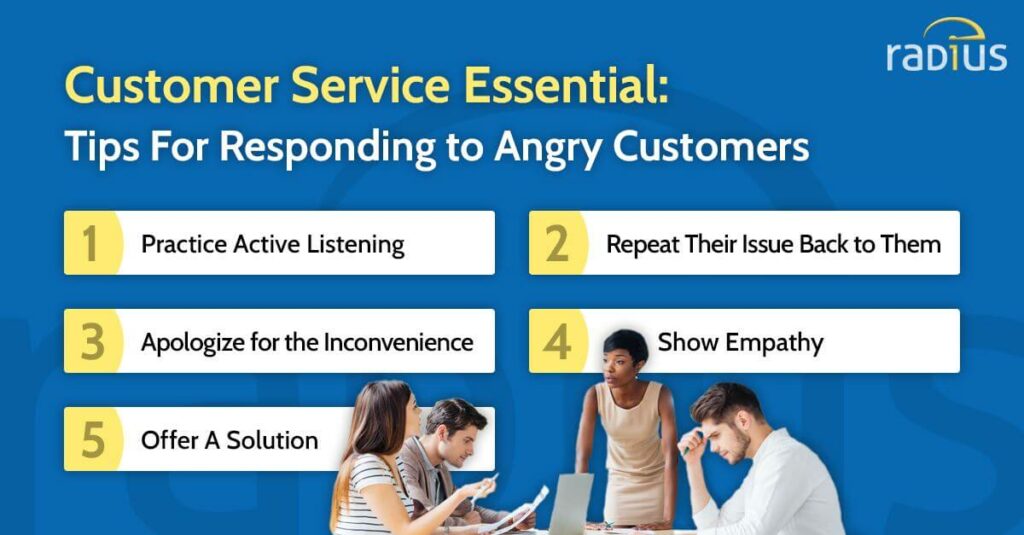Handling Difficult Customers: Tips and Strategies


As a customer service professional, handling difficult customers is an inevitable part of your day-to-day work. It’s essential to develop the skills and strategies necessary to effectively manage these interactions while maintaining the highest level of customer satisfaction. This comprehensive guide explores various tips and techniques to help you turn challenging situations into opportunities for growth and strong customer relationships.
Mastering the Art of Active Listening
The cornerstone of any successful customer interaction is active listening. This means giving your full attention to the customer, asking clarifying questions, and empathizing with their concerns. By demonstrating genuine interest in their issue, you can help diffuse tension and build trust, ultimately leading to a more productive conversation.
Stay Calm and Maintain Professionalism
It’s crucial to remain calm and composed when dealing with difficult customers. Maintaining a professional demeanor can help prevent the situation from escalating and demonstrates your commitment to providing exceptional service. Remember to breathe, speak clearly, and maintain a polite tone throughout the conversation.
Practice Empathy and Compassion
Empathy and compassion are powerful tools in handling difficult customers. By putting yourself in the customer’s shoes and acknowledging their feelings, you can create an emotional connection and establish rapport. This understanding often leads to a more productive and collaborative resolution.
Set Boundaries and Assertiveness
While it’s essential to be empathetic and understanding, it’s equally important to set boundaries and assert your position when necessary. Ensure that the customer is aware of your company’s policies and procedures, and calmly explain the limitations of what you can do. By being assertive, you can gain control of the conversation and guide it toward a resolution.
Offer Solutions and Alternatives
Difficult customers often become more cooperative when presented with viable solutions or alternatives to their problems. Be proactive in offering options and explaining the benefits of each. By demonstrating your commitment to finding a resolution, you can ease tensions and move the conversation forward.
Know When to Escalate
In some cases, it may be necessary to escalate the issue to a higher authority or involve a manager. Recognize when you’ve exhausted your resources and know when it’s appropriate to seek additional support. Escalating the issue can help protect your own well-being and provide the customer with a satisfactory resolution.
Learn from Each Interaction
Every difficult customer interaction is an opportunity for learning and growth. Reflect on each encounter and identify areas for improvement. By continually refining your skills and strategies, you can become more adept at handling challenging situations and providing exceptional customer service.
Develop a Support Network
Working in customer service can be emotionally taxing, particularly when dealing with difficult customers. It’s important to have a strong support network to help you debrief and process your experiences. This can include colleagues, managers, or even friends and family members who understand the challenges you face.
Conclusion: Turning Difficult Customers into Loyal Advocates
By mastering the art of handling difficult customers, you can transform challenging interactions into opportunities for positive outcomes. With the right combination of active listening, empathy, assertiveness, and problem-solving, you can build strong customer relationships and foster long-term loyalty. Remember to learn from each interaction, continually refine your skills, and lean on your support network to thrive in the demanding world of customer service.






Responses